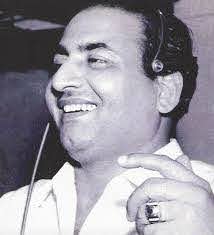The National award winner Indian legendary singer Mohammed Rafi was born on 24 December 1924. The notable singer of the Indian rather Bollywood film industry was an owner of a golden voice. He was not only awarded National Award for the playback male singer for the movie Hum Kisise Kum Neheen in 1977 for the song “Kya Hua Tera Wada”, but 6 times he won the Filmfare award for the best playback singer. In 1965 he won BFJA Award for the Best playback male singer for the movie Dosti for the song “Chahunga Main Tujhe”.
Posthumously the marvelous singer was awarded as Best Singer of the Millennium by Stardust Award in the year 2001. In 1967, he was honored with the Padma Shri award by the Government of India. The Greatest Voice in Hindi Cinema was another honor given as a tribute to the great singer by CNN-IBN’s poll. Not only by the awards by the vast category of songs he sang from highly romantic songs, wholehearted patriotic numbers, qawwalis to ghazals and bhajans to classical every genre of Indian Bollywood music was conquered by him. From fast peppy numbers to patriotic songs, sad numbers to the beautiful romantic any of his songs can make anyone die for his golden voice.
In 1944 with a miraculous opportunity when he did a brilliant stage performance in presence of music director Shyam Sundar. Immensely impressed Shyam Sundar gave Mohammed Rafi his first break with the song Soniye Hiriye, Teri Yaad Ne Bahut Sataya, for the Punjabi film “Gul Baloch” in 1944. He did his debut playback at the early age of 20. After that, he didn’t look back. In Bombay he got his next playback offers like Shyam Sundar in his film “Gaon Ki Gori”, and Naushad in his film “Pehle Aap”.
He not only did musical playback, but also acted in a few movies. His acting debut was in the movie Laila Majnu (1949), then he acted in “Jugnu” (1947). Naushad gave him memorable songs like “Tera khilona toota balak” in Anmol Ghadi (1946), and later the song “Is duniya mein ae dilwalo” in Dillagi (1949). His phenomenal voices created history with each song like “O duniya ke rakhwale” in Baiju Bawra (1952), “Madhuban mein radhika nache re” in Kohinoor (1960), “Chaudavi Ka Chand” (1960).








